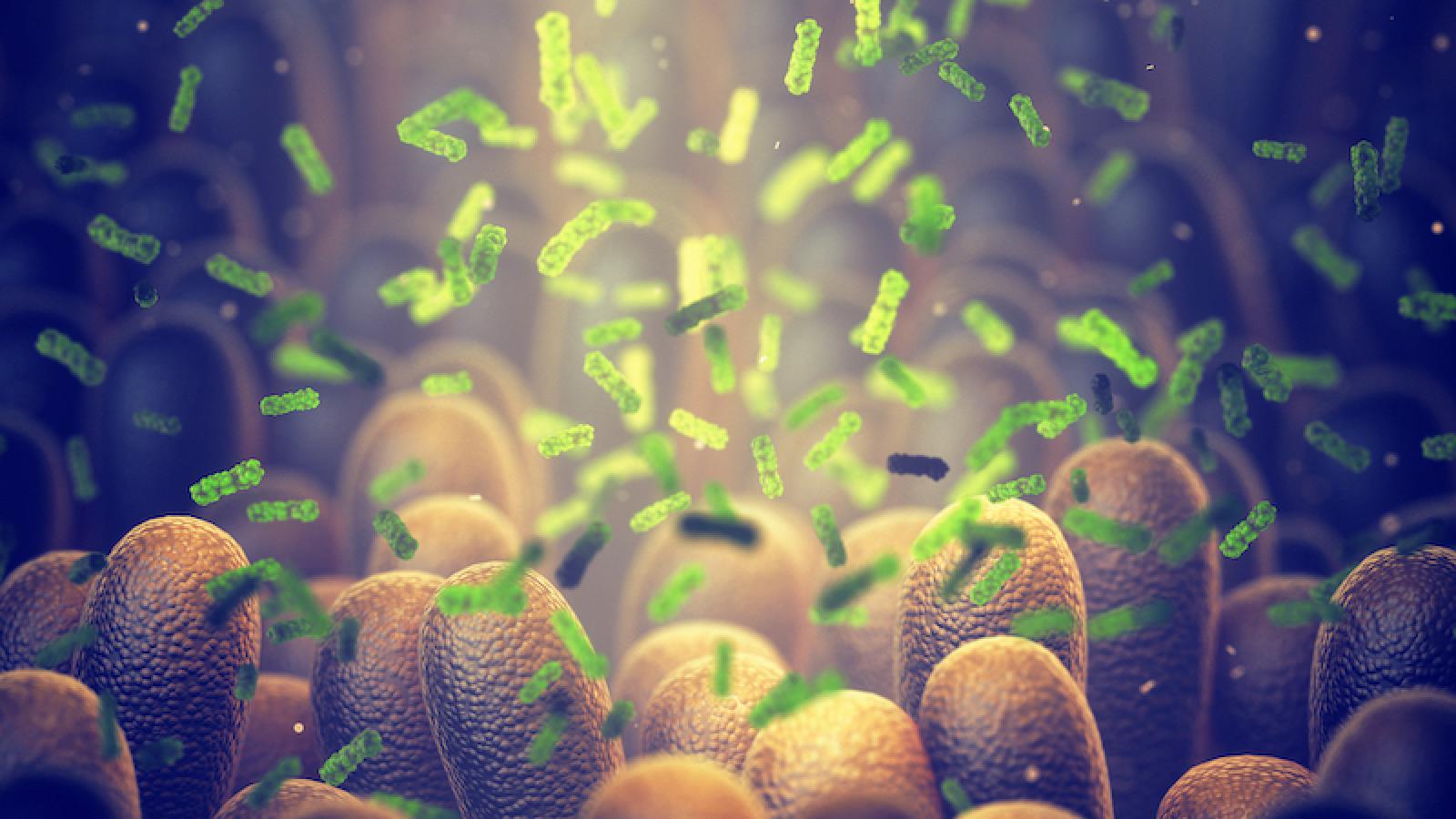A team of researchers have discovered a new biological link connecting gut microbes with the creation of new neurons in the adult brain. The findings highlight the importance of gut-to-brain communication and present a new avenue to explore in the search for dementia treatments.
Published in the scientific journal Proceedings of the National Academy of Sciences of the United States of America (PNAS), the international, interdisciplinary team spanning the UK DRI at Imperial, Singapore, Australia, Canada, the US and Sweden found that adult mice lacking in gut microbes generate fewer neurons in the hippocampus, a brain area important in learning and memory.
This study is another intriguing piece of the puzzle highlighting the importance of lifestyle factors and diet.Prof Paul MatthewsCentre Director at UK DRI at Imperial
To uncover the biological mechanism, the researchers generated mice whose gut microbes could not process an important amino acid known as tryptophan into a molecule called indole. These mice also showed reduced numbers of new neurons in the hippocampus, suggesting the processing of the amino acid tryptophan is critical in this gut-brain regulation. By supplementing the drinking water of these mice with indole, the generation of new neurons was restored. In additional experiments using brain cells in a dish, the team were then able to pinpoint the key signalling pathway from the gut microbe metabolism to the brain.
Study lead, Prof Sven Pettersson, National Neuroscience Institute of Singapore and Visiting Professor, Lee Kong Chian School of Medicine, Singapore, said:
"These findings bring us a step closer to novel therapeutics for ageing and brain disorders. By developing new drugs that mimic the action of indoles, we may be able to slow memory decline seen in conditions like Alzheimer’s or stimulate the replacement of neurons damaged during stroke or spinal injury. There’s a possibility that food products enriched with indoles could also be used as a dietary intervention. We have an exciting time ahead of us, where we’re also keen to explore the role of indole in regulating the early formation of new neurons during development.”
The formation of new neurons is known as neurogenesis and is thought to contribute to learning and memory in the adult brain. To integrate into the circuitry of the brain, the newly generated neurons change shape and form new connections known as synapses, which was also seen in these studies. The results open the intriguing possibility that indole levels, known to decline with age, could be supplemented therapeutically to boost adult neurogenesis and the formation of new synapses. This could help counter the slow cognitive decline caused by neurodegenerative diseases like Alzheimer’s, where neurons and the connections between them become dysfunctional and are lost.
Study co-author, Prof Paul Matthews, Centre Director at UK DRI at Imperial, Edmond and Lily Safra Chair, NIHR Senior Investigator, and Head of the Department of Brain Sciences, said:
“There is increasing interest in our microbiomes and the connection between gut and brain health. This study is another intriguing piece of the puzzle highlighting the importance of lifestyle factors and diet. Importantly, it also points to new much-needed treatment opportunities for the diseases that cause dementia – now the leading cause of death in the UK.”
Reference
Tryptophan-metabolizing gut microbes regulate adult neurogenesis via the aryl hydrocarbon receptor
George Zhang Wei, Katherine A. Martin, Peter Yuli Xing, Ruchi Agrawal, Luke Whiley, Thomas Wood, Sophia Hejndorf, Yong Zhi Ng, Jeremy Zhi Yan Low, Janet Rossant, Robert Nechanitzky, Elaine Holmes, Jeremy K. Nicholson, Eng-King Tan, Paul M. Matthews, Sven Pettersson
Proceedings of the National Academy of Sciences Jul 2021, 118 (27) e2021091118; DOI: 10.1073/pnas.2021091118
Article published: 28 June 2021
